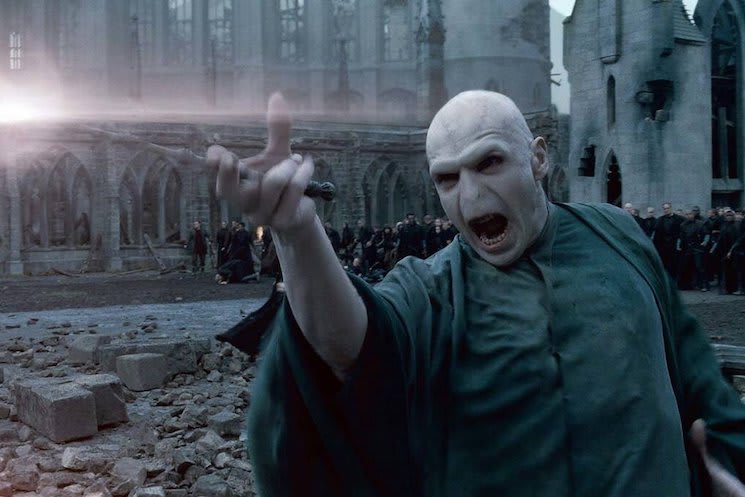Furthering the divide between Harry Potter actors who do and don't understand the valid critiques of controversial author J.K. Rowling, Ralph Fiennes, the actor who played Voldemort in the film series, has stepped up to defend his transphobic pal.
In an interview with The Telegraph, Fiennes proved his ignorance surrounding transgender issues, calling the Rowling backlash — not her many, many, harmful remarks about trans people — "disturbing."
"I can't understand the vitriol directed at her," the actor said. "I can understand the heat of an argument, but I find this age of accusation and the need to condemn irrational."
He continued: "I find the level of hatred that people express about views that differ from theirs, and the violence of language towards others, disturbing."
What Fiennes appears to be either missing or forgetting, is that Rowling's legacy of transphobia and an unwillingness to accept the spectrum of gender identities has become almost synonymous with her name after she first began her public TERF journey over two years ago.
While nearly every other Harry Potter actor — including Emma Watson, Rupert Grint, Eddie Redmayne and Daniel Radcliffe himself — has denounced the author's stance, Fiennes will find kinship with fellow HP cast member, Robbie Coltrane, who played Hagrid in the franchise and offered his defence of the author last year.
Fiennes' remarks follow Rowling's most recent controversy, which took the form of a novel under the pseudonym Robert Galbraith (perhaps not coincidentally the same name as a 1950s gay conversion therapist). A review of Troubled Blood revealed that the book's antagonist is a killer cis man who dresses up as a woman to lure victims, a common trope in the "transphobic debate."
Prior to that review, Rowling alienated two of her fan clubs for her problematic response to the use of inclusive language in an article about support in the era of COVID-19 for people menstruate, in which she insinuated such language erases the "concept of sex" and thus removes "the ability of many to meaningfully discuss their lives."
Shortly after that, Rowling also went on a 3,800-word rant, complaining about being "cancelled" for being a TERF. Later, she compared transgender hormone treatment to "conversion therapy for young gay people."
In an interview with The Telegraph, Fiennes proved his ignorance surrounding transgender issues, calling the Rowling backlash — not her many, many, harmful remarks about trans people — "disturbing."
"I can't understand the vitriol directed at her," the actor said. "I can understand the heat of an argument, but I find this age of accusation and the need to condemn irrational."
He continued: "I find the level of hatred that people express about views that differ from theirs, and the violence of language towards others, disturbing."
What Fiennes appears to be either missing or forgetting, is that Rowling's legacy of transphobia and an unwillingness to accept the spectrum of gender identities has become almost synonymous with her name after she first began her public TERF journey over two years ago.
While nearly every other Harry Potter actor — including Emma Watson, Rupert Grint, Eddie Redmayne and Daniel Radcliffe himself — has denounced the author's stance, Fiennes will find kinship with fellow HP cast member, Robbie Coltrane, who played Hagrid in the franchise and offered his defence of the author last year.
Fiennes' remarks follow Rowling's most recent controversy, which took the form of a novel under the pseudonym Robert Galbraith (perhaps not coincidentally the same name as a 1950s gay conversion therapist). A review of Troubled Blood revealed that the book's antagonist is a killer cis man who dresses up as a woman to lure victims, a common trope in the "transphobic debate."
Prior to that review, Rowling alienated two of her fan clubs for her problematic response to the use of inclusive language in an article about support in the era of COVID-19 for people menstruate, in which she insinuated such language erases the "concept of sex" and thus removes "the ability of many to meaningfully discuss their lives."
Shortly after that, Rowling also went on a 3,800-word rant, complaining about being "cancelled" for being a TERF. Later, she compared transgender hormone treatment to "conversion therapy for young gay people."




